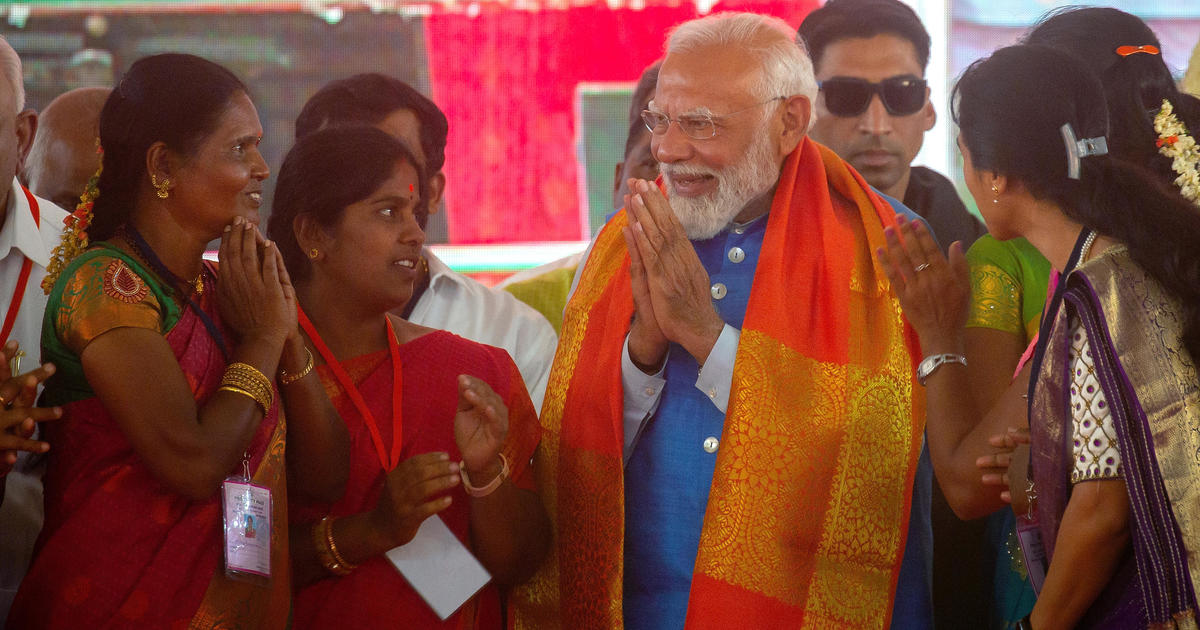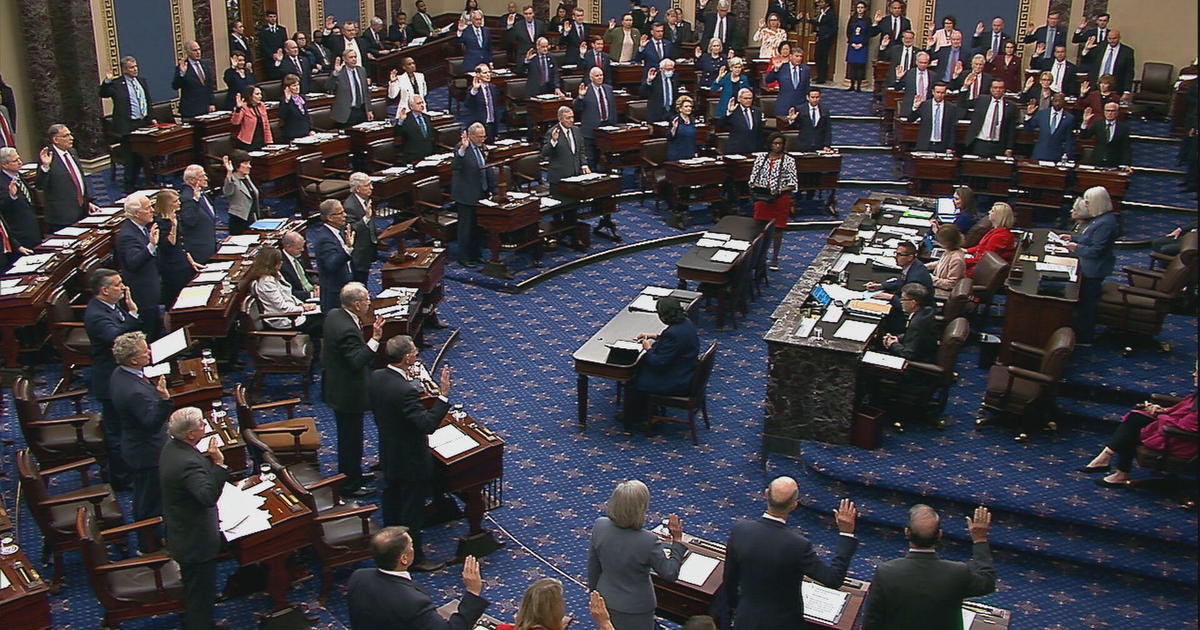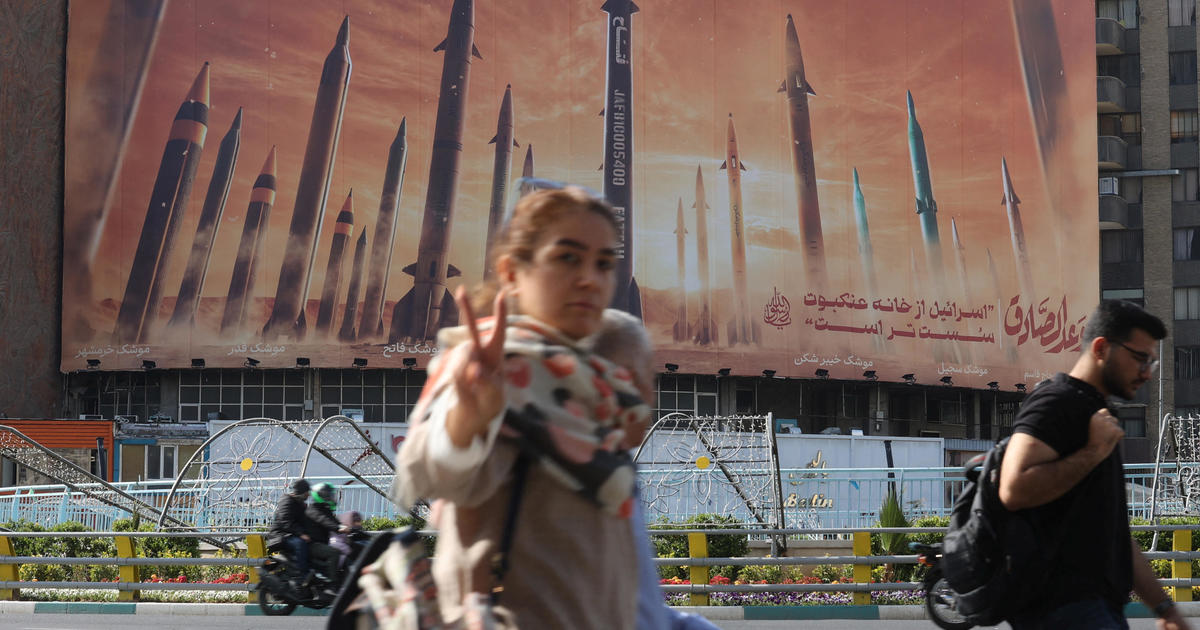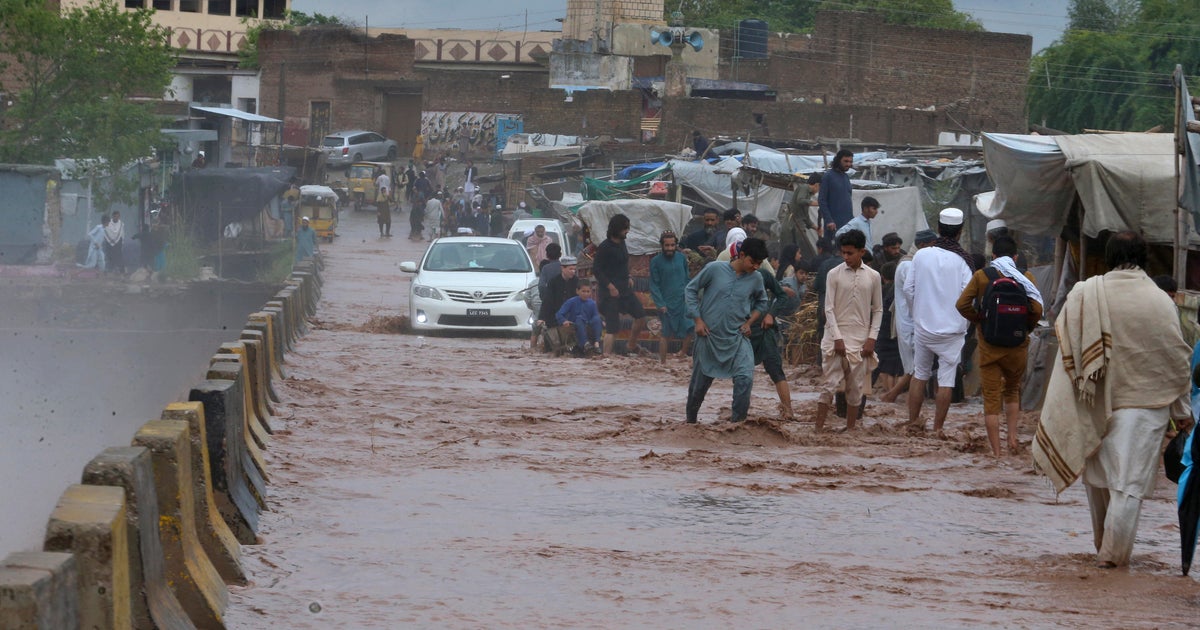Election results in India show Narendra Modi set to return as PM for 2nd term
New Delhi -- Prime Minister Narendra Modi was set to win a second term in office as his Bhartiya Janata Party (BJP) racked up an overwhelming majority of the votes being counted across India on Thursday. The tallying of votes in the world's biggest democracy showed the BJP-led National Democratic Alliance (NDA) winning at least 350 seats in parliament of the 542 that were up for grabs. The BJP alone was poised to take about 290 seats.
A coalition of parties needs just 272 seats in the lower house of parliament, called the Lok Sabha (People's House) to form the new government and nominate the prime minister -- making it all but certain that Modi would find himself in that seat for another five years.
"Together we will build a strong and inclusive India," Modi proclaimed on Twitter as the results became clear. "India wins yet again!"
Modi's BJP broke its own record for an election performance this year, bettering the results from the last general elections in 2014, in which it won 282 seat. Their alliances added another 54 seats, taking the total NDA tally to 336. That, five years ago, was the best tally by any one party in three decades.
BJP's main opposition party, the Indian National Congress (INC), had won just 54 seats, 10 better than the last election. But their performance in 2014 - winning 44 seats - was their worst ever. The party that has governed India for 49 of its 72 years of independence will now be forced to take a hard look at its campaign strategy.
The results were not yet official as counting continued, but the final numbers were not expected to deviate significantly from the preliminary returns.
In one of the biggest upsets of the elections, opposition leader Rahul Gandhi, of the Indian National Congress party, lost his parliamentary seat in Uttar Pradesh state's Amethi district. Gandhi held onto another seat so will technically remain a member of the legislature, but the defeat in Amethi, which he had held for many years, was a huge embarrassment, and he acknowledged the sentiment across the country.
"Today, frankly, it doesn't matter what I think went wrong," Gandhi said. "Today what matters is that the people of India have decided that Narendra Modi is going to be the Prime Minister."
Modi met his cabinet colleagues and party leaders Thursday evening in New Delhi to discuss the formation of a new government. That process will likely take a few days as they jump through the hoops of officially nominating the prime minister and the council of ministers. It will all culminate in an oath-taking ceremony, expected before the end of May.
Pakistan's role in Modi's win
During a bitter election campaign, the opposition targeted Modi on economic issues, like failure to create jobs when the unemployment rate is at its highest in four decades, a farm sector crisis, and an alleged hate campaign against minority Muslims. But none of those issues seemed to resonated with voters.
Modi's campaign focused sharply on nationalism and security, especially after recent heightened tensions with neighbor Pakistan.
The two nuclear-armed Asian neighbors managed to step back from the brink of war after a major terror attack in Indian Kashmir, which India blamed on Pakistan-based militants and responded to with airstrikes inside Pakistan.
Modi has been credited with strengthening India's foreign policy, and he often takes credit for "isolating Pakistan" on the world stage.
With his handling of the Pakistan stand-off early this year, he carried the image of a strong leader into the election, and it paid off.
That could mean the world will see more strained ties between India and Pakistan during the next five years.
"Modi's resounding win gives India a strong new mandate to maintain its hard line on Pakistan," Michael Kugelman, Deputy Director of the Asia Program at the Washington D.C.-based Wilson Center, told CBS News on Thursday.
"When Modi first took office for his last term in 2014, he extended an olive branch to Islamabad. But circumstances have changed now, with emotions from the recent crisis with Pakistan still raw, and the new Modi government will not be in a conciliatory mood -- at least not initially," Kugelman said.
"Hate carried the day"
Audrey Truschke, an assistant professor of South Asian history at Rutgers University in New Jersey, said there were many factors that brought Modi and his BJP their landslide victory, including a weak opposition and the national security concerns mentioned above, "but the BJP ran on a platform of Hindutva; a bigoted ideology that proclaims Hindu supremacy and views India's religious minorities -- especially Muslims and Christians -- as second-class citizens."
"Hate carried the day," Truschke told CBS News.
The BJP has been accused of running a religiously polarising campaign, amid a string of violent attacks on Muslims in the country, often in the name of protecting cows, which are sacred to Hindus.
Modi taunted his political opponents in the Congress party, seen as being close to India's Muslim community, in his victory speech.
"A particular group used to wear the tag of secularism to get away with anything," he said. "Now no one can dare cheat the country by wearing the niqab (Muslim headscarf worn by women) of secularism."



